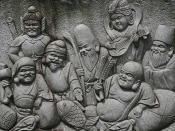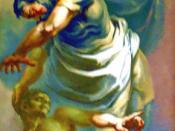What should come to mind when democracy is mentioned? Equality, rights, citizenship, toleration, participation. Democracy should be a word familiar to most, but it is a concept still misused and misunderstood to this day. Democracy is defined as "government by the people in which the supreme power is vested in the people and exercised directly by them or by their elected agents under a free electoral system (WebsterÃÂs Dictionary)." In the words of Abraham Lincoln, democracy is a government "of the people, by the people, and for the people." Freedom and democracy are often used as one, but are not synonyms. Democracy is indeed a set of ideas and principles about freedom, but also consists of a set of practices and procedures that identify constitutional government, human rights, and equality before the law. Nevertheless, the idea of democracy has provoked some of historyÃÂs most profound explanations of human will and intellect, like Thomas JeffersonÃÂs Declaration of Independence in 1776.
Democracy was a growing idea to the thirteen English colonies in America during the eighteenth century. By examining the changes in politics, religion, property distribution, and social structure in Wethersfield, Connecticut between 1750-1780, one can see the growing reality of democracy, which swept through American society, but also a few impediments to that growth.
Before the eighteenth century, before democracy, before the people had a strong voice in everything, before toleration, there was a different prerogative. The idea was that God came first, then the king, and lastly, the people. John Winthrop was a huge supporter of this idea. He told people to improve their lives to do more service to the Lord, to serve the Lord and work out their salvation under the power and purity of His holy ordinances. People must love each other without telling secrets and lies,


